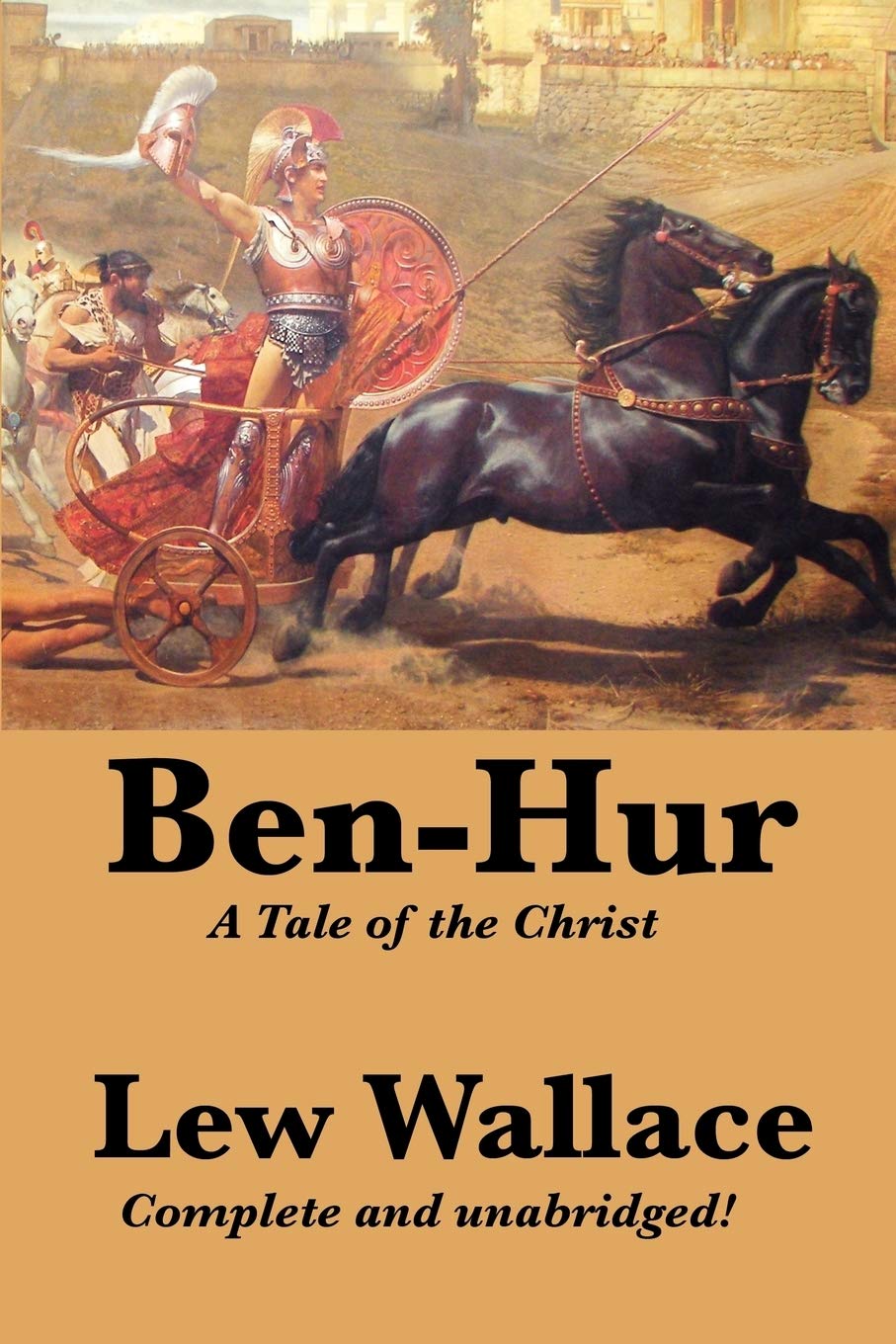TL;DR
Ben-Hur: A Tale of the Christ intertwines the life of Jesus Christ with an epic story of redemption and revenge as Judah Ben-Hur, a wronged Jewish nobleman, seeks justice against the Roman Empire.
What is Ben-Hur about
"Ben-Hur: A Tale of the Christ" by Lew Wallace, published in 1880, is a seminal American novel that combines historical fiction with a deeply spiritual narrative. The story follows Judah Ben-Hur, a Jewish nobleman who is unjustly accused of treason by a Roman officer and subsequently enslaved. Throughout his trials, he grapples with themes of faith, justice, and redemption, ultimately finding solace and transformation through his encounters with Jesus. The novel reflects the societal values of the time, emphasizing moral integrity and the power of divine intervention, making it a significant work in both literature and religious discourse.
Ben-Hur 5 Key Takeaways
Judah Ben-Hur's fall from grace.
Judah Ben-Hur, a wealthy Jewish nobleman, is falsely accused of attempting to assassinate the Roman governor. This betrayal leads to his enslavement, separation from his family, and profound personal turmoil.
The chariot race.
In a bid for revenge and to reclaim his honor, Judah becomes a skilled charioteer. His thrilling race against his former friend, now rival, Messala, symbolizes his struggle against oppression and injustice.
Judah's encounters with Jesus.
Throughout his journey, Judah witnesses the life and teachings of Jesus, whose message of forgiveness and love serves as a guiding light for Judah's eventual path to redemption.
Judah's quest for vengeance.
Driven by a desire for revenge against Messala, Judah’s journey encapsulates the conflict between personal vendetta and the spiritual awakening he experiences through Jesus’ influence.
Resolution and forgiveness.
In the end, Judah grapples with his desire for vengeance and ultimately chooses forgiveness, realizing that true redemption lies in embracing faith and the transformative power of love.
Top Ben-Hur Quotes
- "The greatest thing a man can do for his children is to love their mother."
- "Happiness is the result of an act of the will."
- "There is no greater love than that of a man who lays down his life for his friends."
Who should read Ben-Hur?
"Ben-Hur: A Tale of the Christ" is ideal for readers interested in historical fiction, Christian literature, or epic narratives that explore themes of faith, redemption, and justice. Its rich storytelling and moral lessons offer profound inspiration, making it a rewarding read for those seeking both entertainment and spiritual insight.
Ben-Hur Best Reviews
- "A gripping tale of faith and redemption that captivates the reader while weaving biblical elements within a grand narrative." - The New York Times
- "Lew Wallace's epic work is both a thrilling adventure and a profound spiritual journey, making it timeless in its appeal." - Publishers Weekly
People also liked these summaries
Ben-Hur FAQs
What is the message of Ben-Hur?
The central message of Ben-Hur revolves around themes of redemption, forgiveness, and the power of faith, illustrating how one can rise above injustice through spiritual awakening.
Is Ben-Hur a purely fictional story?
While Ben-Hur is a fictional tale, it is set against a historically accurate backdrop of Roman rule during the time of Christ, merging fiction with biblical events.
How has Ben-Hur influenced modern literature?
Ben-Hur has influenced modern literature by blending historical narrative with spiritual themes, inspiring countless adaptations and discussions about faith and justice in storytelling.
